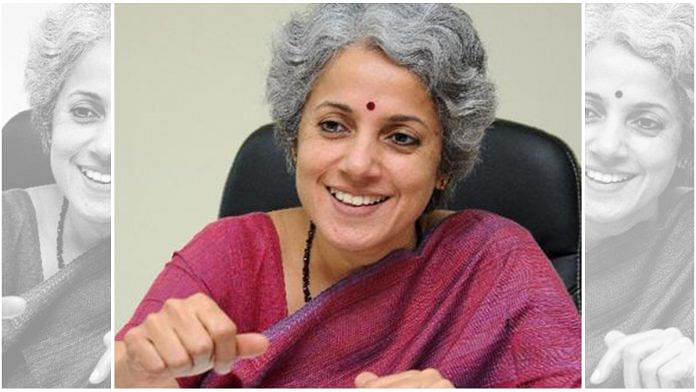New Delhi: The trend of mixing and matching Covid-19 vaccines was “dangerous”, given the limited availability of data on the safety of administering different types of vaccines, World Health Organisation (WHO) chief scientist Soumya Swaminathan warned.
She made these comments during a WHO press briefing held in Geneva Monday.
“We receive a lot of queries from people who say they’ve taken one and they’re planning to take another one so it’s a little bit of a dangerous trend here where people are in a data-free, evidence-free zone as far as mix-and-match… there’s limited data on mix-and-match,” Swaminathan said.
So far, emerging studies have shown that administering the Pfizer mRNA vaccine after AstraZeneca (known as Covishield in India) is safe, and may even lead to a better immune response.
But faced with a shortage of vaccines, some countries are also considering mixing other vaccines.
For instance, Thailand has now changed its vaccine policy — deciding to mix China’s Sinovac with the AstraZeneca vaccine, instead of administering two doses of Russia’s Sputnik V vaccine.
“There are studies going on; we need to wait for that and maybe it will be a very good approach but at the moment we only have data on the Oxford AstraZeneca vaccine followed by Pfizer,” Swaminathan said.
“So it will be a chaotic situation in countries if citizens start deciding when and who should be taking a second, third or fourth dose,” she added.
Also read: Big crowds thronging hill stations, markets without Covid protocol concerning, says PM Modi
On booster dose
Responding to a question about the need for booster doses, Swaminathan said that if 11 high- and upper-middle-income countries decide to start administering a booster for their populations, they will require an additional 800 million doses of vaccine.
However, there is currently a need to prioritise doses for countries where the frontline and healthcare workers, as well as the elderly and the vulnerable have not yet been vaccinated.
“At this point when there is no scientific evidence to suggest that boosters are definitely needed, we have seen in some countries an increase in infections but no significant increase in hospitalisation or deaths and it may well be that you need boosters after a year or two years,” Swaminathan said.
“It has to be based on the science and the data, not on individual companies declaring that their vaccines should now be administered as a booster dose,” she added.
(Edited by Amit Upadhyaya)
Also read: Daily vaccinations drop in July after a record high in June, Modi govt blames states



